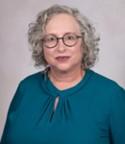May 12 was Military Spouse Appreciation Day, part of National Military Appreciation Month. In recognition, we’re highlighting the Military Spouse Fellowship Program (MSFP), a program of the U.S. Chamber of Commerce Foundation’s Hiring Our Heroes (HOH). This year, for the first time, it includes a nationwide 12-week paid fellowship through a collaboration with the Department of Defense called the Military Spouse Career Accelerator Pilot (MSCAP).
Many nonprofits continue to struggle in recruiting talent for open positions, according to our recent Nonprofit Workforce Survey. Those nonprofits may want to check out the MSFP, which matches military spouses with employers for the fellowship. The program includes professional development opportunities and support for fellows, who are paid $18/hour during the fellowship.
For prospective employers, there is no cost to host a fellow. The goal is for fellows to receive an offer of permanent employment at the conclusion of the 12 weeks. We caution nonprofits not to view it as a free 12-week intern. Rather, it’s a fresh and largely untapped talent pool and a way for nonprofits to try out and onboard a new employee – a military spouse who is paid by the program during the fellowship. The program also assists both parties while also reducing the risk for both parties.
Host employers are expected to train fellows in their new roles, provide mentors willing to share their experience and knowledge, supervise each fellow’s work, and provide appropriate feedback.
Why military spouses?
Military spouses face an unemployment rate of 21 percent due to frequent moves and a lack of a network in their new community. They are 92 percent female and mirror the high levels of diversity in the military. They tend to be more highly educated than most working Americans and are lifelong learners: 80 percent pursue additional training or certification.
Military spouses are masters of flexibility, ingenuity, and perseverance, according to the program’s literature. (Having worked closely with a military spouse who is a colleague at the National Council of Nonprofits for nearly seven years, I can confirm.) Candidates in the program may not have specific nonprofit experience, but many have readily adaptable skills and experience.
Why nonprofits?
While most of the 150 hosts have been for-profit companies, the program seeks more nonprofit employers, according to Elizabeth Garcia, Director of the Military Spouse Fellowship Program at HOH. Elizabeth said, “Military spouses have a heart for nonprofit work. We frequently hear that they have a desire to work in that space.”

Senior Director
of Advancement
for United Through
Reading
Carol Macrander, Senior Director of Advancement at the nonprofit United Through Reading, recently hired two fellows through the MSFP program. “For nonprofits, it’s an opportunity to bring someone on and see if it’s a good fit for them and a good fit for you, without impacting your budget. The only impact on your budget is the training you give them when they’re a fellow.”
Trista Shinskie, who holds advanced degrees in education and has 13 years of experience teaching in public schools, was one of the fellows hosted by United Through Reading. Trista said that she had recently been transferred to Camp Pendleton in California, had a young child, and decided not to return to teaching for various reasons. She completed a Salesforce certification last fall and applied to the MSFP program in January. Two days after her resume was included in the February resume launch, she was invited to interview for a Grants Manager position at United Through Reading. Trista had no experience with nonprofits and thought, “What do I know about any of this?”
However, Carol Macrander, who recruited her for the position, had no question that Trista would be a great fit. Trista’s background as a reading specialist and literacy teacher, and her passion for the mission of the literacy nonprofit – as well as experience writing grant proposals and reports for her classroom – were just what Carol was looking for. “The HOH database allows you to screen for specific skillsets and then pull up the resumes and kind of drill down,” said Carol. “I knew she had the skillsets.”
Trista began her fellowship at the end of February and received an offer of full-time employment before her 12 weeks were up. The nonprofit’s Advancement department is fully remote, and Trista hopes to remain in the position after her next move.
How the program works
MSFP matches candidates with host organizations based on the candidate’s skills, the host’s open positions, and both parties’ preferences. Fellows begin work at their host organization in the program’s second week; during the first week, MSFP engages them in professional development and support activities. For the remaining 11 weeks of the program, fellows are with their host employer four days a week, while the fifth day is reserved for professional development, networking, and support. Elizabeth Garcia explained, “On Fridays, the fellows come back to HOH, where they find a safe space to talk about their fellowships, share what they’re learning and experiencing, and hear from guest speakers (all virtual).”
A third-party staffing agency handles payroll and provides liability, workers’ compensation, and unemployment insurance. After the initial 12 weeks, if the fellow successfully receives an offer of permanent employment, they will be directly employed by the host.
Elizabeth shared with us “Legal FAQs” about the fellowships her staff provides to employers.
About the candidates
“We have a monthly resume release, with 255 resumes released in March and 271 in April,” said Elizabeth. “About 46 percent of our spouses have Masters’ degrees, and about 50 percent have some type of certification. Applicants come from all 50 states.” She said about half of the recent releases had been placed as of early May. “This program offers great talent, and employers get to ‘test drive’ them in their new roles…for free.”
The program has six program managers who oversee select regions covering all 50 states. The managers work directly with candidates and companies for fellowship alignments and serve as liaisons for both parties throughout the 12 weeks. Roughly 80 percent of the fellowships to date have been for remote or virtual employment.
Elizabeth cautioned that the candidates are very strong, and it can be competitive for employers. It’s important that employers approach the program with a specific job offer in mind. “Portability” is also important. Most spouses of the job-seeking candidates are active duty, so fellows/future employees will move around, although some expect to stay in one location longer.
Although applicants’ skill sets vary from month to month, the largest talent pools are currently in Human Resources/Talent Acquisition, Program/Project Management, Business Operations & Administration, Data and Program Analysis, and Information Technology, according to Elizabeth. She added that there are broadly three types of candidates:
- Career entry spouses, which require an AA degree to be in the program – this would typically be someone looking for their first job with the degree.
- Career re-entry spouses making their way back into the workforce.
- Dislocated workers – those with a lot of experience, but whose spouse received orders to move and were thus dislocated from prior jobs and networks.
The MSFP emails information about available candidates to participating hosts monthly and upon request.
After the fellowship
At the end of the 12 weeks, the goal is for fellows to receive an offer for full-time paid employment from the host. Indeed, 91 percent of the nearly 1,000 fellows have received such offers.
Next steps for interested nonprofit employers
General information about the program can be found here. Interested employers should register by filling out this online “Hosting a Fellow” form and checking “Military Spouses” under “Type of Fellows Your Organization is Interested in Hosting.” The next section asks you to check the preferred location(s) and offers “Remote” as an option. The last question is, “How did you hear about the fellowship program?” Of course, you’ll want to enter “National Council of Nonprofits” there. (No, we don’t receive a commission, but we do want to signal our support for the program and for military spouses.)
Once registered, you’ll receive a call from program staff who will explain the program and share the Host Agreement. You’ll also be placed on the list for the monthly resume release.

now Grants Manager
for United Through
Reading
Trista Shinskie said she couldn’t be happier with her new position as Grants Manager for United Through Reading. In addition to being passionate about the nonprofit’s mission, she said, “With a two-year-old, my older 'bonus kids' coming for the summer, and the unknowns that come with having an active-duty spouse, there was no salary that I would trade for the benefits of flexibility and being able to work at home. I did not have that before. Work-life balance was more important than anything else.”
Please let us know if your nonprofit engages with the Military Spouse Fellowship Program – and feel free to share your experiences with the program.
Additional Resources
- Nonprofits Seeking Talent to Advance Your Missions – Consider Hiring Military Spouses (National Council of Nonprofits, 2019)
-
Five Reasons Veterans Are Ideal Nonprofit Employees (National Council of Nonprofits, November 2019)
Our Series on Creative Approaches to the Nonprofit Workforce Shortage Crisis
This article is part of a series describing creative, practical approaches to the workforce shortage crisis that can elevate equity, address burnout and stress, and discover, nurture, and develop talent in nontraditional ways.
One of our five core values at the National Council of Nonprofits is “Honoring the Nonprofit Workforce,” which reflects our deeply held belief that “Nonprofits and their employees should have the respect and the resources needed to get their work done.”
That core value shapes our work creating and curating information to assist frontline nonprofits with their operations and capacity-building. It also drives much of our advocacy work promoting public policy solutions at the federal, state, and local levels to get more funds to nonprofits stretched by the combination of growing needs, decreasing revenue, increasing costs, and rising salaries.
